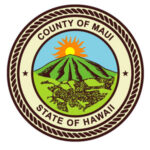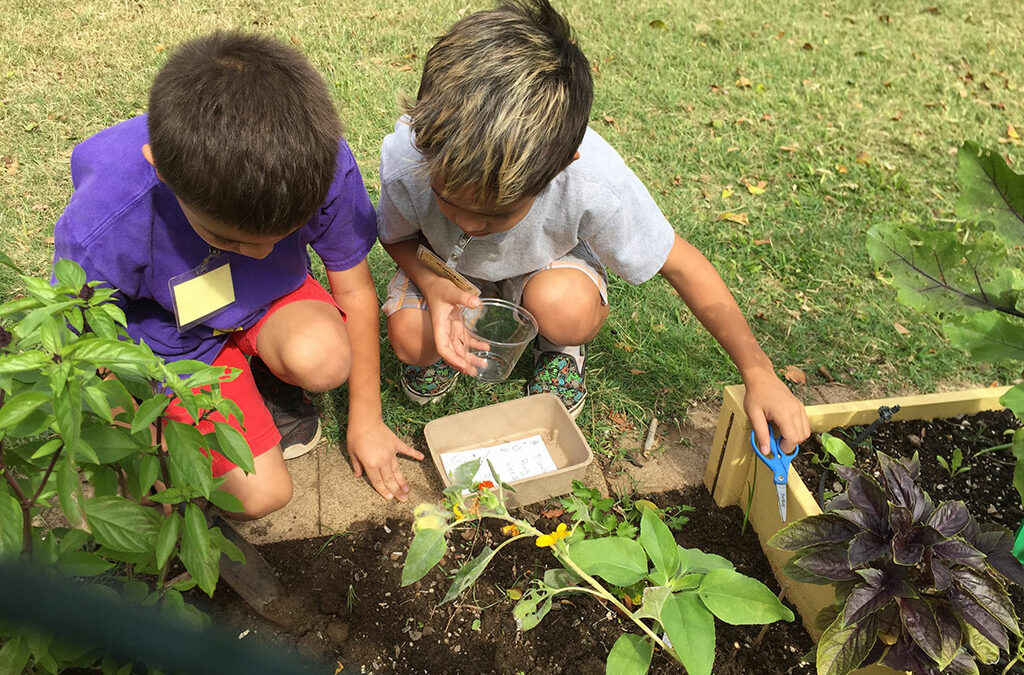
Jan 18, 2017 | Community, Environment
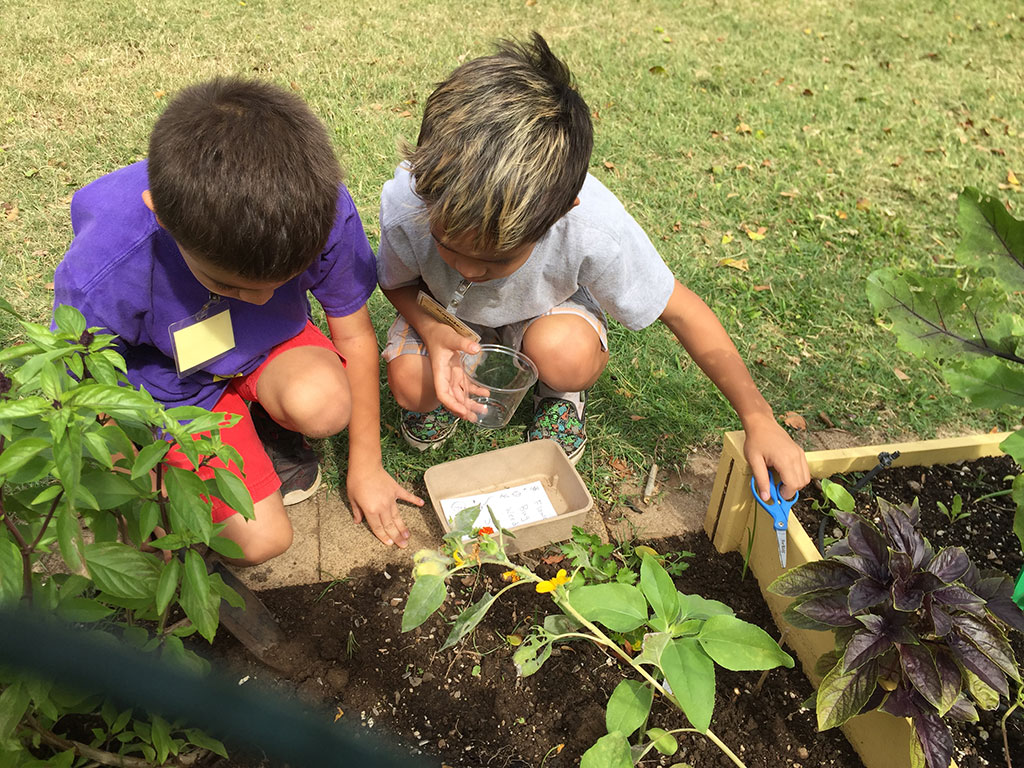
Kahului Elementary School’s 1st grade Grow Some Good (GSG) garden classes recently held Garden Scavenger Hunts as a fun way to review the lessons they have learned so far in the 2016-2017 school year. “Our students learn STEM (science, technology, engineering, mathematics) subjects that help influence their understanding of the natural environment and food,” said Wendy Shishido, first-grade teacher at Kahului Elementary School. “They are able to watch the decomposition process in our compost bin and all the insects and worms doing their part to help make healthy soil. The garden becomes a magical learning space when the youngsters realize we need tomatoes to make pizza!”
Each pair of students was given a collection box, courtesy of Hawaiian Moons Natural Foods, containing a checklist, scissors and a bug cup with instructions to collect the following: a flower; a bug, insect or worm; two weeds; something that smells; and a heart-shaped leaf. “They found that marigolds provided lots of flowers; they hunted down ants, sow bugs and worms; and weeds were easy to come by,” said Nio Kindla, GSG Operations Manager. “Smelly items included the lemon, Thai or Italian green basil, green onions, sage lemongrass or rosemary, which all have strong smells.”
The teacher checked the items for the first pair of students to complete the scavenger hunt. Subsequent pairs of students were checked by classmates. “This is where the real learning came in,” Kindla explained. “As they worked and questioned each other as about whether a plant smelled enough, whether a leaf was heart-shaped enough, how to identify weeds, a real camaraderie grew.”
Students improved their garden literacy, identified and described what they had found, and added new words to their vocabularies. “Some students also learned that keeping an ant in a cup has its challenges!” said Kindla.
The community is invited to GSG’s annual Taste of School Gardens community-wide fundraiser on March 4th, 2017. Guests get to try school garden-inspired dishes from Maui’s top chefs while supporting the school garden programs. For more information, go to growsomegood.org.
Watching 1st graders have that “aha” moment when they realize that what their parents buy in the supermarket is first grown in a garden, is priceless!
Nio Kindla, Grow Some Good Operations Manager
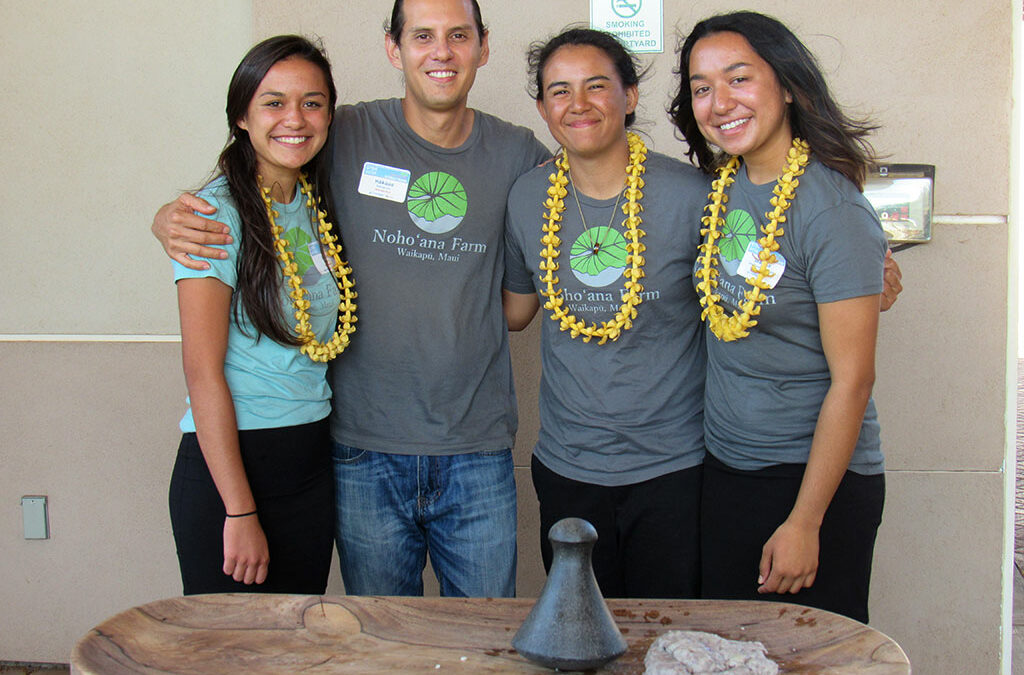
Jan 11, 2017 | Community
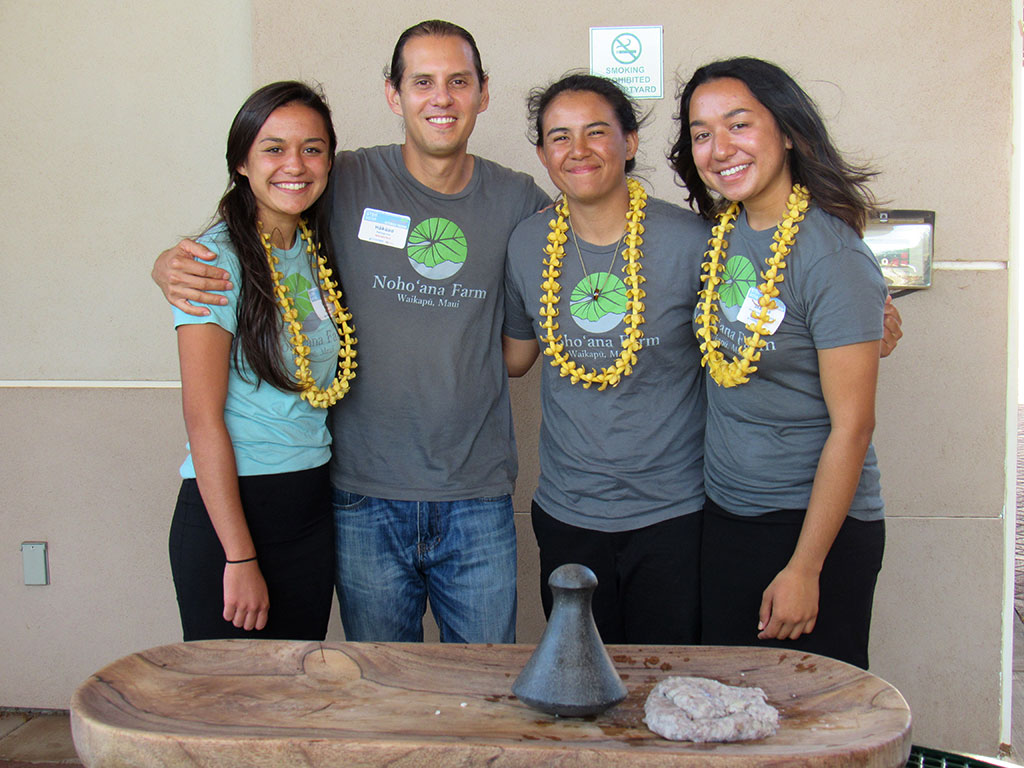
Makahiki is an ancient Hawai’ian celebration of the bounty of the ‘aina (land). It punctuated the yearly farming cycle of ancient Hawaii when the ‘aina was considered a living entity. People really care for it and still do.
Noho’ana Farm celebrates this natural way of life. As an energy self-sufficient, family-run farm situated on two acres of kuleana (privileged responsibility) land, Noho’ana comprises 12 ancient lo’i kalo stone terraces that are fed via the fresh waters of the Waikapu Stream. Along with kalo, other important Hawaiian and introduced crops are cultivated at the farm using traditional, sustainable and organic farming practices.
“We have developed an ‘aina-based program designed to educate everyone, from children to adults, about the importance of time-honored and sustainable lo’i kalo cultivation,” said Hokuao Pellegrino, owner and manager of Noho’ana Farm. “We teach the methods of traditional crop production, along with the use of plants and food preparation within an instructive landscape.”
“Participants actively engage with the land while learning the appropriate cultural and natural resource management practices,” Pellegrino explained. “Attendees are taught how to harvest the taro, pound the steamed roots into edible paste and cut the stems for replanting. In fact, many of our visitors get into the water and learn how to dig their heels into the mud to harvest the taro.”
Pellegrino is also a mentor in the Maui Economic Development Board Women in Technology Project, STEMworks™ Summer Internship Program. This year’s Agricultural interns, Noelani Reyes, Kealohalani Ka’aikala and Jade Chihara spent their STEMworks™ internship at Noho’ana Farm. “Our three interns assisted in running our summer culture and place-based program for students in grades 6-7,” Pellegrino said. “Prior to engaging with the younger students, they spent a good amount of time learning how to manage the farm. This included traditional irrigation and water resource management, using farm equipment, planting and harvesting crops, and food production. Behind all of this work they learned many cultural values that are in alignment with their day-to-day responsibilities and an overall appreciation for being food stewards of the ‘aina.”
Our internship at Noho’ana Farm gave us a more prominent concern for environmental issues. We learned that caring for the ‘aina is everyone’s kuleana, privileged responsibility.
Noelani Reyes, Kealohalani Ka’aikala and Jade Chihara, STEMworks™ Summer Interns
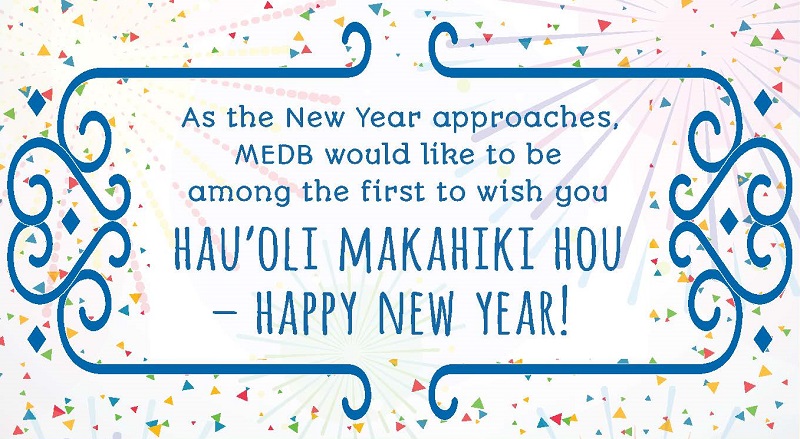
Dec 28, 2016 | Community

The Makahiki season, the ancient New Year festival to honor Lono, is still celebrated and practiced by Native Hawaiians, with games, sports and religious ceremonies. Our culturally diverse population also celebrates with fireworks, parties, and special New Year foods, from the Japanese traditions of eating sashimi and preparing mochi, to Portuguese bean soup, Filipino adobo, Chinese dumplings, and Southern black-eyed peas.
The New Year is also a time to make resolutions – affirmations of self-improvement and promises to do good things for others. This tradition dates back thousands of years to Babylon and biblical times and it was in the days of the Roman Empire and Julius Caesar that January 1st came to mark the beginning of the year. It was the Romans that named the first month of the calendar, January, after Janus, the God of beginnings. Janus had two faces, one facing forward and one back, so he could see into the past and the future simultaneously.
The Jewish tradition of Yom Kippur, the Day of Atonement, and the Christian observance of Lent are also precursors of making resolutions in the year ahead. Studies have shown that resolutions that set measurable goals, shared with and supported by others, are more likely to be successful. The most common resolutions include losing weight, eating more healthily, exercising more, and spending more time with family.
Whatever your personal resolutions, Maui Economic Development Board staff would like to be among the first to wish you “Hau‘oli Makihiki Hou” and the very best for 2017 – Happy New Year!
As the New Year approaches, MEDB would like to be among the first to wish you Hau‘oli Makihiki Hou – Happy New Year!
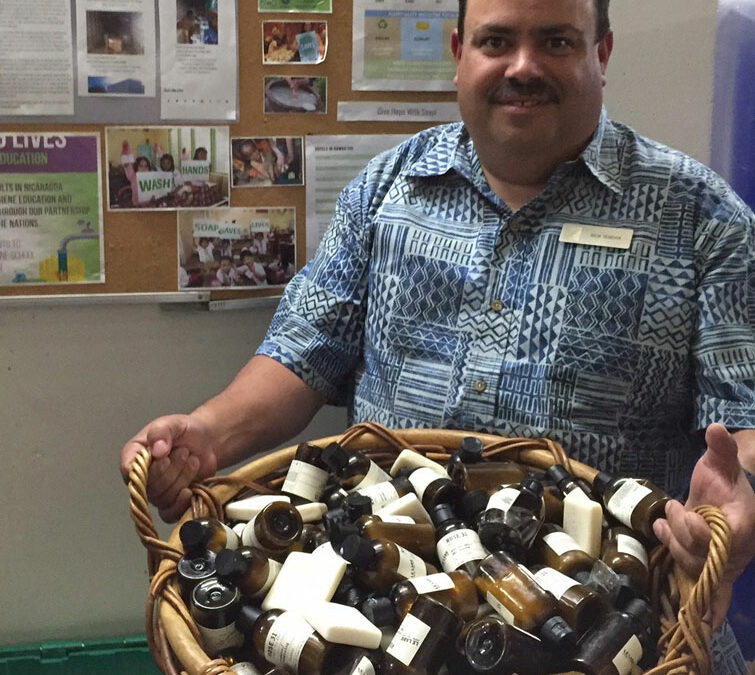
Dec 21, 2016 | Community, Environment, Sustainability
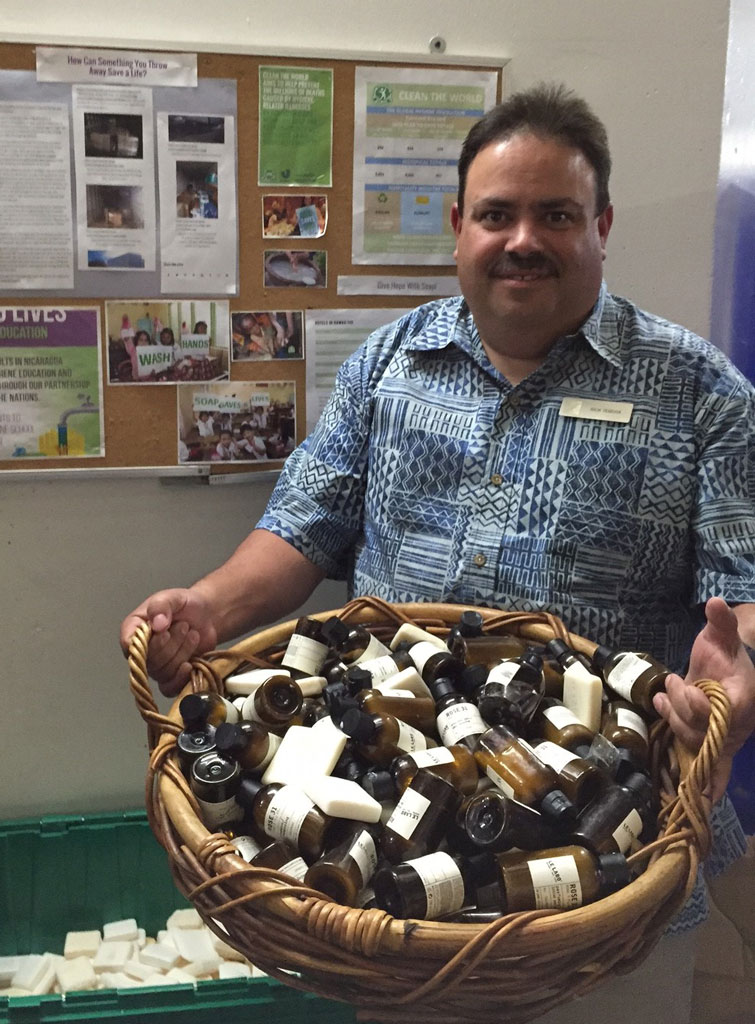 The Fairmont Kea Lani Resort, venue for Maui Economic Development Board’s annual Ke Alahele Fundraiser, is committed to responsible tourism practices and sustainable hotel management. “Our Sustainability Team, created in 2001, is comprised of leaders and colleagues dedicated to “greening” our operations and cultivating an enduring connection to the land and community,” said Rick Texeira, Chair, Fairmont Kea Lani Sustainability Team. “To date, the Sustainability Team has launched over 50 environmental initiatives at the resort, including the installation of over 1,528 solar photovoltaic panels, efforts in support of the critically endangered Hawksbill sea turtle at neighboring White Rock beach, and our sponsored Earth Day community reef clean-ups, to name a few.”
The Fairmont Kea Lani Resort, venue for Maui Economic Development Board’s annual Ke Alahele Fundraiser, is committed to responsible tourism practices and sustainable hotel management. “Our Sustainability Team, created in 2001, is comprised of leaders and colleagues dedicated to “greening” our operations and cultivating an enduring connection to the land and community,” said Rick Texeira, Chair, Fairmont Kea Lani Sustainability Team. “To date, the Sustainability Team has launched over 50 environmental initiatives at the resort, including the installation of over 1,528 solar photovoltaic panels, efforts in support of the critically endangered Hawksbill sea turtle at neighboring White Rock beach, and our sponsored Earth Day community reef clean-ups, to name a few.”
An especially interesting Kea Lani program, in partnership with Clean the World Foundation, Inc., recycles hygiene products, soap and bottled amenities for worldwide distribution to fight hygiene-related illness. “Clean the World takes our unused soap, shampoo, conditioner, lotion, and shower gel and gives them a second life through a global hygiene initiative,” Texeira explained. “The distribution of recycled soap and hygiene products from hotels and resort partners helps millions of people in countries with a high death rate from these illnesses.”
Recycling with Clean the World and other sustainability projects are a great way to achieve corporate social responsibility goals and attract more guests. “The programs increase employee morale and visitors love it as well,” said Texeira. “I’m so proud of the commitment and effort our hotel has shown. Not only are we recycling, we are helping those in need and supporting the health and wellness of others. It is wonderful to see how simple and responsible acts can save so many lives. We look forward to continuing our sustainable movement for many years and are passionate about our efforts to make a difference for people, our communities and the planet.”
Our hotel has contributed to Clean the World’s distribution of soap, amenities, and hygiene kits in 96 countries.
Rick Texeira, Chair, Fairmont Kea Lani Sustainability Team
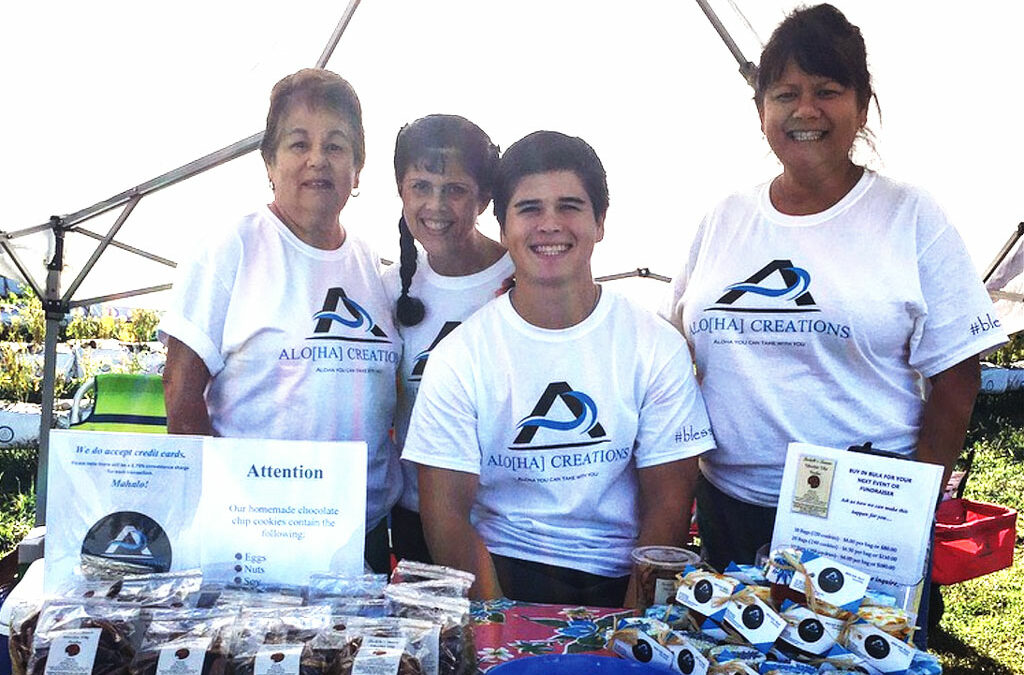
Dec 7, 2016 | Community
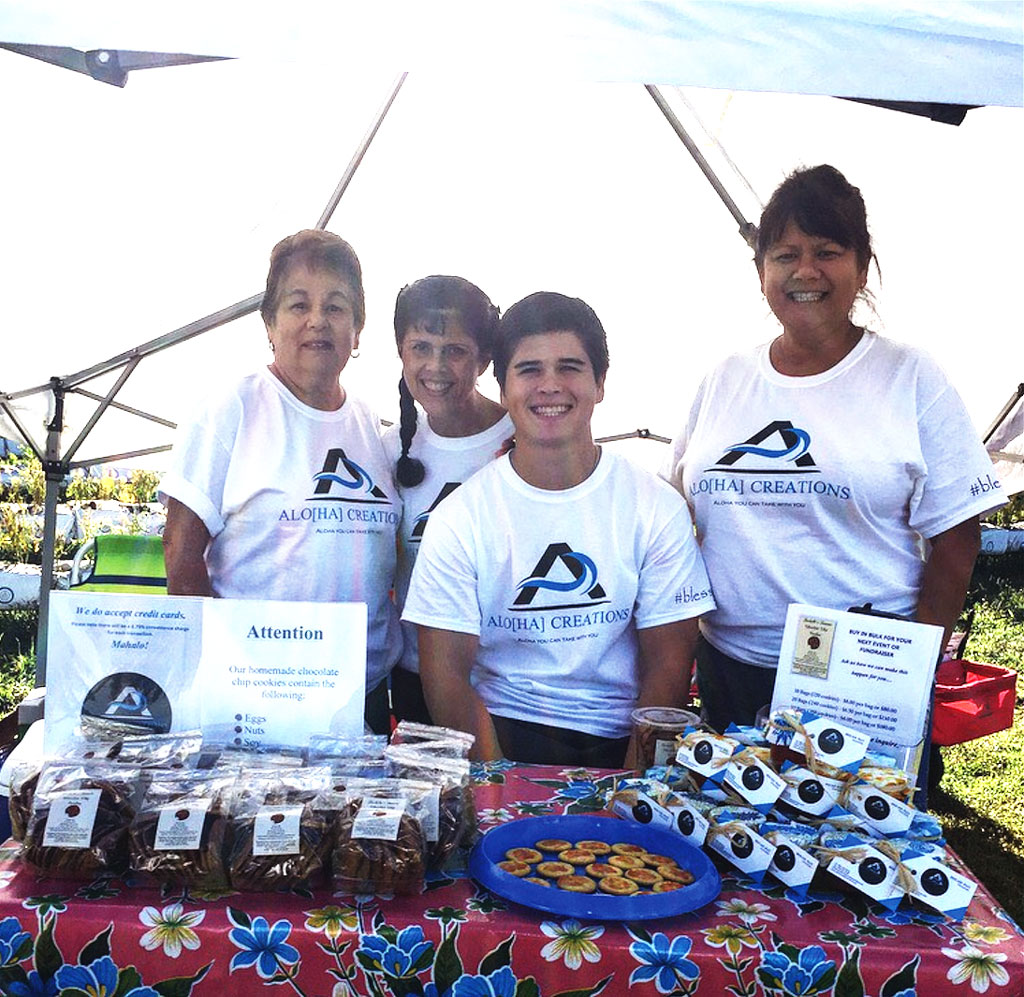 Alo(ha) Creations is a new family-run business on Maui. Their goal is to create unique products made with aloha you can take with you. “The meaning of our company name Alo(ha) is comprised of two parts,” explained Micah Alo, founder of Alo(ha) Creations. “Our family name is Alo, the first part, and the Hawaiian word “ha” meaning to breathe or give life, is the second part. It is our hope that our food, art and other creations will bring life and love to our customers.”
Alo(ha) Creations is a new family-run business on Maui. Their goal is to create unique products made with aloha you can take with you. “The meaning of our company name Alo(ha) is comprised of two parts,” explained Micah Alo, founder of Alo(ha) Creations. “Our family name is Alo, the first part, and the Hawaiian word “ha” meaning to breathe or give life, is the second part. It is our hope that our food, art and other creations will bring life and love to our customers.”
Alo, a former Kamehameha Schools Maui Campus graduate and Maui Interscholastic League soccer standout, said that after a tryout with the professional Portland Timbers didn’t work out, he turned to business, his other passion. “After the tryout I went to World Youth Day (WYD) in Poland to see Pope Francis. My experience at WYD, with people from all over the world, gave me the faith I needed to start my own business.”
Alo began to see the different talents that his family possessed and thought, “Why not turn these into a business? My family and I started our business a few months ago and my mom’s cookies have already taken off,” Alo noted. “Our goal is to make Rochelle’s Famous Chocolate Chip cookies a household name. Additionally, I saw the talent of my brother Chandler and sister Gabrielle and felt their art should be on display for everyone to see. My nana, Carol, and aunty Elaine, are gifted in crafts and packaging, and have really helped incorporate the cookies, artwork, and other local products into our gift baskets, which we also make for events.”
Just recently the family attended the 2016 Maui Native Hawaiian Chamber of Commerce Business Fest. “The event was an inspiring opportunity for local business people to see that they can successfully contribute to the island community as well as to the world. I met folks from Maui Economic Development Board (MEDB) and others, who provided me with amazing insight that I will use to expand Alo(ha) Creations.”
MEDB provides many educational opportunities for new businesses that we plan to take advantage of.
Micah Alo, Alo(ha) Creations
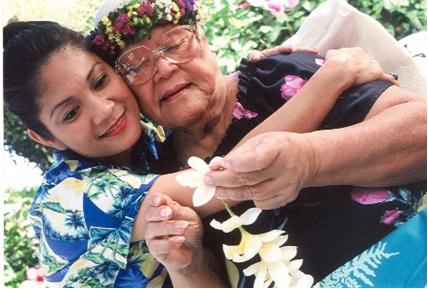
Nov 23, 2016 | Community
 One of the central values surfaced by MEDB’s countywide community engagement of our residents, Focus Maui Nui, was the “addressing of human needs.” Na Hoaloha is a Maui organization that lives and breathes that value. It is a grass roots organization that promotes social responsibility and addresses human needs by providing compassionate care to seniors and those with disabilities.
One of the central values surfaced by MEDB’s countywide community engagement of our residents, Focus Maui Nui, was the “addressing of human needs.” Na Hoaloha is a Maui organization that lives and breathes that value. It is a grass roots organization that promotes social responsibility and addresses human needs by providing compassionate care to seniors and those with disabilities.
As Maui County’s population ages, many residents will be faced with caring for a family member or will need services themselves. Na Hoaloha’s mission is to help seniors live independently in their own homes for as long as possible and enhance their quality of life.
“Na Hoaloha, meaning ‘loving friends’, was incorporated in 1995 as a 501(C)(3) nonprofit,” said Candice Carter, Na Hoaloha Executive Director. “We began with the Maui County Office on Aging and 21 faith-based congregations working together to define how best to serve Maui’s kupuna.” Today, delivered by over 230 volunteers, Na Hoaloha provides escorted transportation for more than 625 seniors throughout Maui County including Hana and the islands of Lanai and Molokai.
“This year Na Hoaloha’s client intake shot up by 60%,” said Carter. “We match volunteers with participants to ensure compatibility, resulting in support and friendship to our kupuna. Our volunteers provide transport services, friendly visits, telephone reassurance, and respite services. Since we are a small agency, we have the added advantage of flexibility to create innovative programs to meet the challenges for Maui County’s older adults.”
Na Hoaloha’s founder, Sister Roselani Enomoto, CSJ, was born and raised on Maui. She grew up in a family-oriented culture with the principle of ‘kuleana’, meaning responsibility. “Sister Roselani wanted to help Maui’s kupuna maintain grace and dignity while living in their own ‘hale’,” Carter added. “She currently partners with Na Hoaloha on projects that benefit elders in the community.” Na Hoaloha is always looking for committed individuals to help them meet the growing senior population. They are currently recruiting volunteers to help serve as well as members for their Board of Directors.
Through our dedicated and compassionate volunteers, Maui County seniors can get help with their medical appointments, shopping and overall care.
Candice Carter, Executive Director, Na Hoaloha
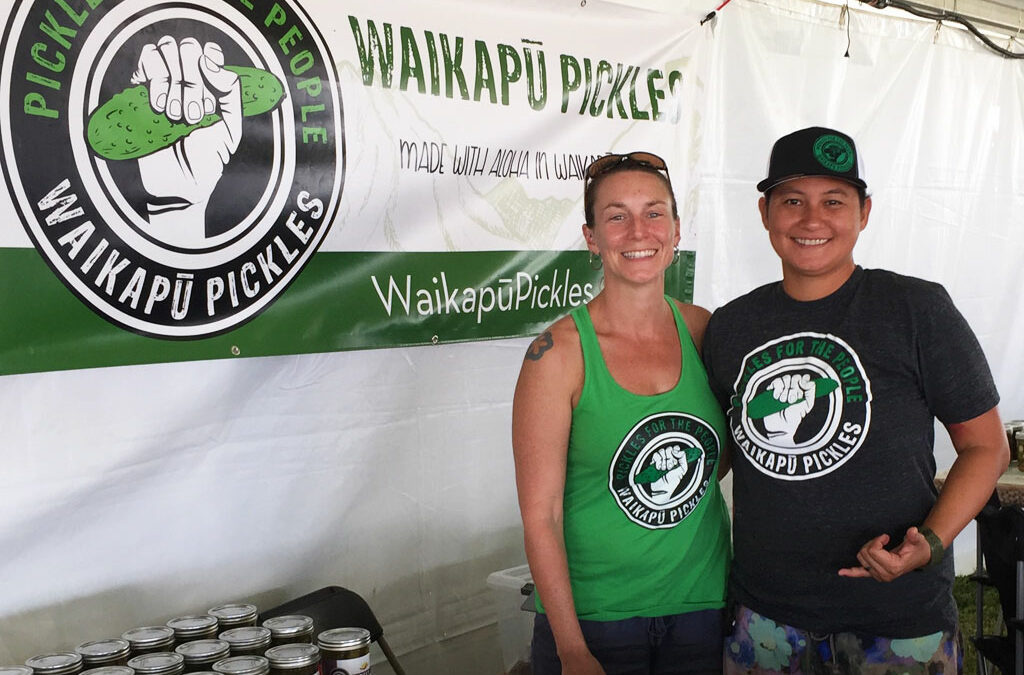
Nov 2, 2016 | Community, Events
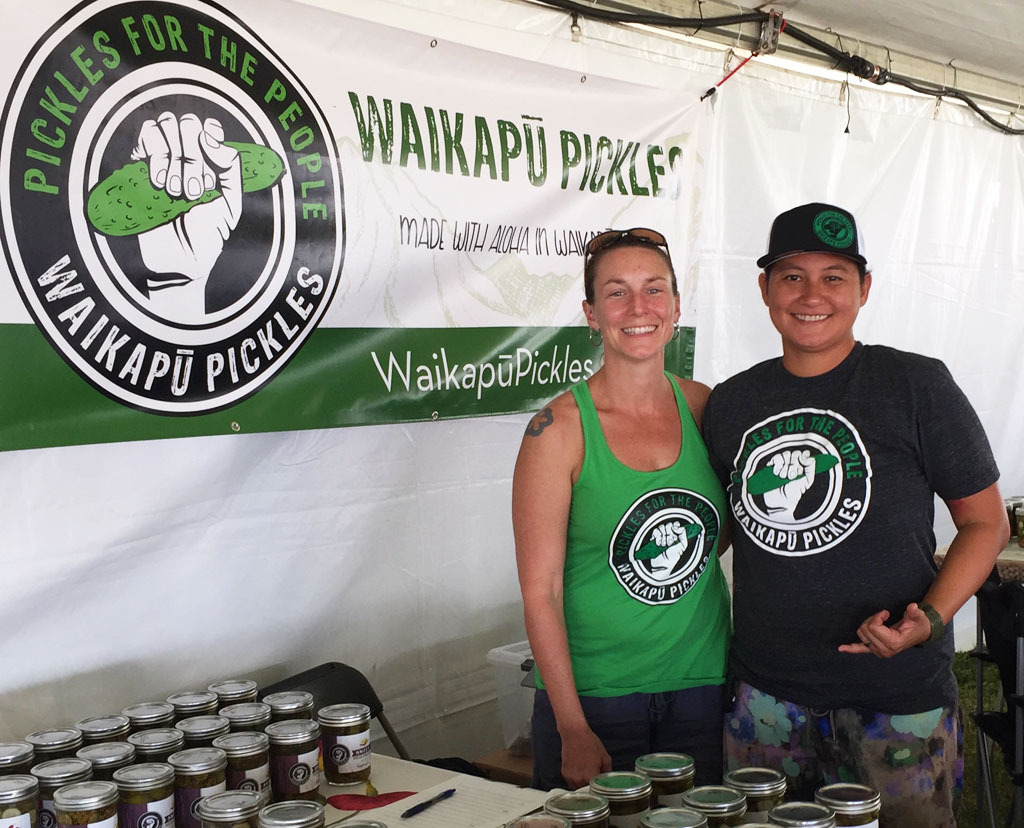
Jen Fordyce, “Head Pickle Lady” of Waikapu Pickles, is on the right.
The 2016 Annual Made In Maui County Festival (MIMCF) on Friday and Saturday, November 4th and 5th, at the Maui Arts & Cultural Center in Kahului, will be one of the Festival’s largest shows to date. Now in its third year, the event showcases hundreds of made-in-Maui County products while helping to grow the islands’ small businesses. Over 140 vendors will offer a wide variety of foods, produce, arts, crafts, jewelry, fashions, gifts, and collectibles. On the 5th, 11 of Maui’s popular food trucks will be featured in the festival’s Food Court, offering a myriad of island-inspired menu items.
The Festival will be the first major show for many businesses that Maui Economic Development Board’s (MEDB) Innovation Series has fostered. “It is incredibly rewarding for us at MEDB to see all the workshops, bootcamps, and Startup Weekends actually paying off,” said Gerry Smith, MEDB Director of Business Development. “I can point to many businesses right now in the MIMCF that launched at a MEDB Startup Weekend. This festival is a vital tool to help them grow their businesses.”
“Jen Fordyce from Waikapu Pickles, one of MEDB’s Innovation Series winners, will be joining the event for the first time,” Smith added. “It’s been great working with her and watching her grow over the last two years.”
“I knew nothing about getting a business off the ground,” said Fordyce. “MEDB hosted a Maui Startup Weekend, which is how my business came to exist in the first place. After the business got up and running, I returned to MEDB for various workshops on finance and accounting for small businesses. Now with a strong foundation for business success, I’m back to the important part, making local pickles for local people. Also, I’m getting out into the community to share samples of pickles and talk about the need to grow our own food and create a more sustainable and independent Maui.”
MEDB’s Innovations Series workshops helped my business go from idea to completion.
Jen Fordyce, Waikapu Pickles Head Pickle Lady
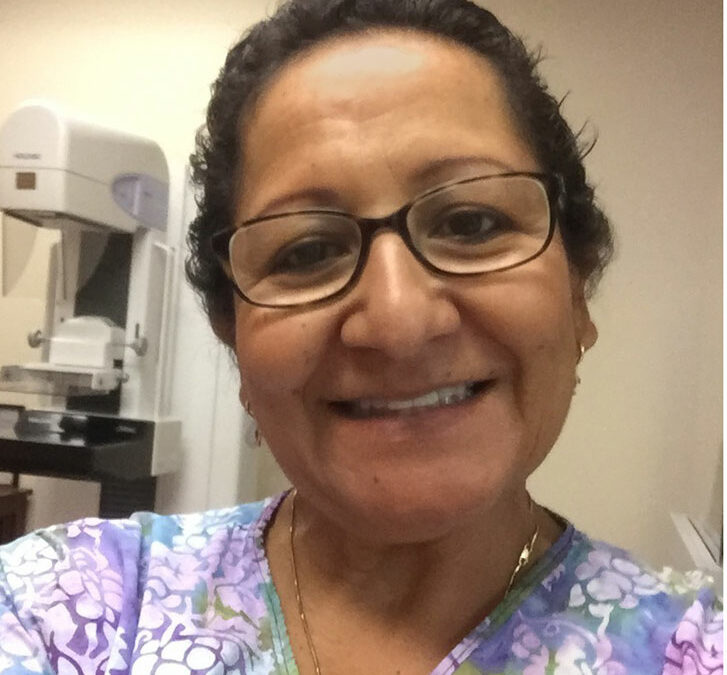
Sep 28, 2016 | Community
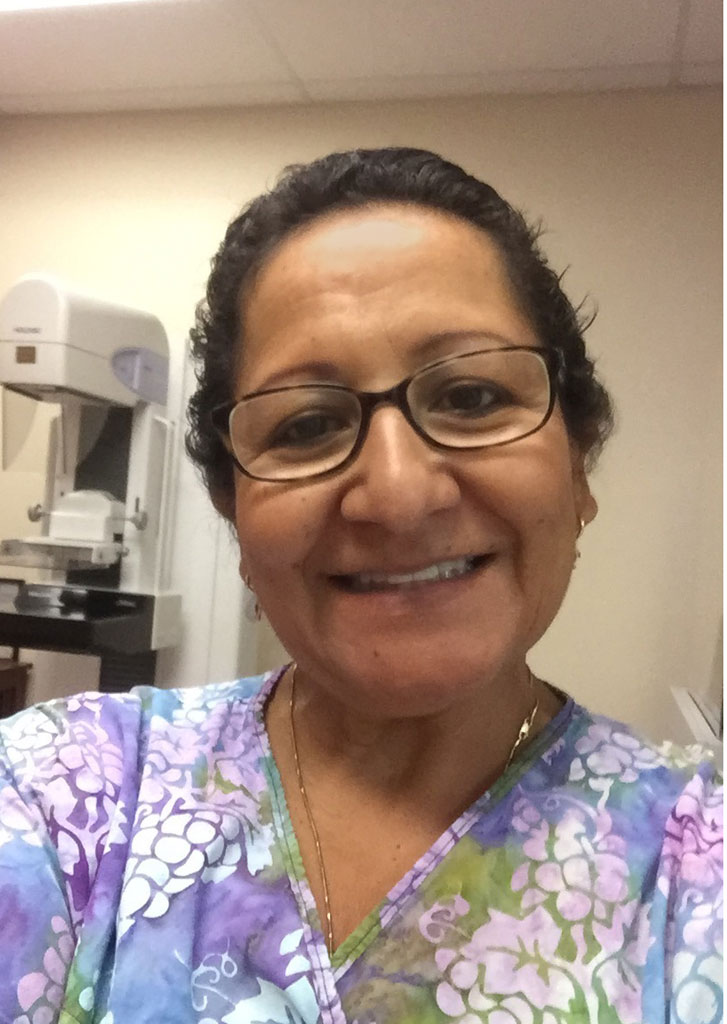 On October 8-9, over 200 cancer survivors and supporters will paddle six-person outrigger canoes across the ‘Au‘au Channel from Lahaina to Lanai. The Pacific Cancer Foundation’s (PCF) 8th Annual Paddle for Life fundraiser, a 34-mile round trip journey to raise funds for Maui’s cancer community, is not a race; it’s a voyage. “The PCF says there is truly a remarkable parallel between an ocean paddling voyage and the journey experienced by cancer patients and survivors,” said Pina Wallace, mammographer at Maui Diagnostic Imaging in Kihei. “Both involve tremendous physical, mental and emotional strength. Both require patience and perseverance. And, ultimately, it takes a team to make the journey successful.”
On October 8-9, over 200 cancer survivors and supporters will paddle six-person outrigger canoes across the ‘Au‘au Channel from Lahaina to Lanai. The Pacific Cancer Foundation’s (PCF) 8th Annual Paddle for Life fundraiser, a 34-mile round trip journey to raise funds for Maui’s cancer community, is not a race; it’s a voyage. “The PCF says there is truly a remarkable parallel between an ocean paddling voyage and the journey experienced by cancer patients and survivors,” said Pina Wallace, mammographer at Maui Diagnostic Imaging in Kihei. “Both involve tremendous physical, mental and emotional strength. Both require patience and perseverance. And, ultimately, it takes a team to make the journey successful.”
This summer marks 17 years that Wallace is a mammographer. On August 19th, 2015 she was diagnosed with Stage 3 breast cancer. “I have had 12 normal mammograms,” said Wallace. “However, my breast tissue was noted on the reports as being extremely dense. Basically my cancer was hidden in the dense breast tissue and was not detected early. Had I had a routine ultrasound for dense breast, it would have been caught at an earlier stage.” Wallace suggests that women need to be familiar with normal lumps and bumps of breast tissue even after a successful mammogram and then discuss it with their doctor.
This year has been surreal for Wallace. She has experienced aggressive chemo therapy, a modified left breast mastectomy, and radiation treatment through her cancer journey. “With Breast Cancer Awareness Month approaching I wanted to take part in the 8th annual Paddle for Life fundraiser,” she said. “It’s an opportunity for me to give back to the county of Maui which has embraced me with the true spirit of aloha.” Excited about the Lanai voyage, Wallace knows it will be very spiritual and healing. “I just finished my last treatment on September 2. I can’t think of a better way to celebrate than with my teammates on this two-day voyage.” A fundraiser link for Wallace and other participants is http://paddleforlife2016.myevent.com. For more info visit www.pacificcancerfoundation.org.
Many of the paddlers are cancer survivors. Several have had double mastectomies and others are undergoing treatments for other cancers. Mahalo to everyone who supports our voyage and cause.
Pina Wallace, Mammographer, Maui Diagnostic Imaging, Kihei
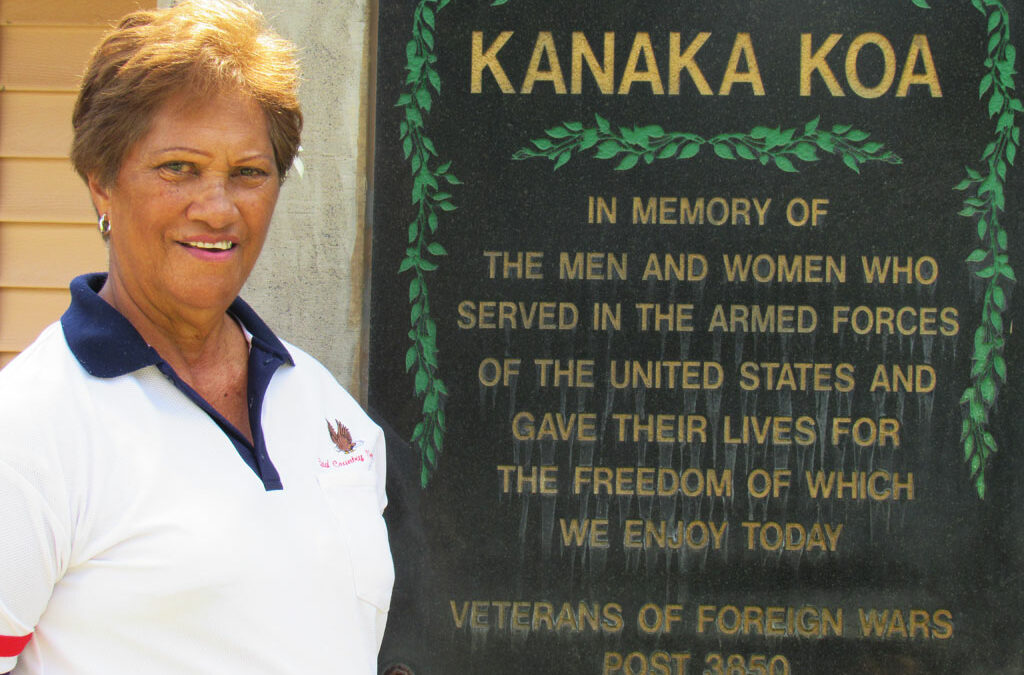
Sep 7, 2016 | Community
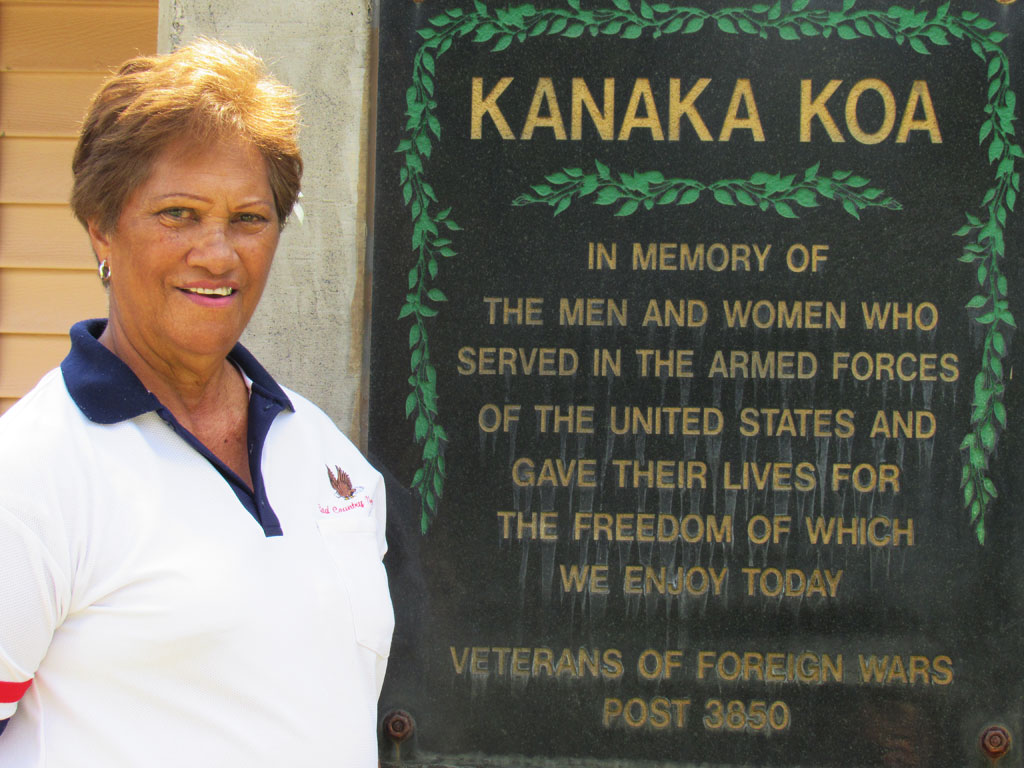
For more than 100 years, the Veterans of Foreign Wars (VFW) Auxiliary has been fulfilling its original objectives to serve veterans of this country within our communities. The Auxiliary is the VFW’s highly regarded support organization and is considered its “Partner in Service”. As a member of Maui VFW Auxiliary #3850, Paula Kalanikau has striven for many years to help veterans and their families. She and others raise financial aid for veterans; perform countless hours of community service; and fund cancer research, Special Olympics, and other worthy causes.
“I became a member of the VFW Auxiliary in 1989,” said Kalanikau. “However it wasn’t until 1998, upon my retirement from the Department of Health, that I got fully involved.” Kalanikau served as Junior Vice President, Senior Vice President, and then as Auxiliary President for three years. She was then elected President of the VFW Department of Hawaii where she worked with Maui County in their community work day projects. In 2005 Kalanikau was named Volunteer of the Year in the County and also received the Gene Thompson Lifetime Award. In 2006, she was instrumental in creating the Maui Freedom Walk to mark the 5th anniversary of the attack on the World Trade Center.
Kalanikau comes from a military family. She served in the Navy Nurse Corps for four years, taking care of the injured and sick. Her husband served in the Hawaii Army National Guard Reserves for 13 years, her brother David served in the Marines, and her brother Gilbert was killed in action in the Korean War. Additionally, Kalanikau served in the medical field at the National Naval Medical Center in Bethesda, Maryland where she saw firsthand how the wounded and their families have suffered. “Our veterans need our support to help them maintain their health and their benefits,” said Kalanikau. “We must continue to understand their needs.”
The community is invited to a Kihei VFW All You Can Eat Pancake Breakfast Fundraiser on Saturday, September 10th from 7am to 10am. There will also be an annual VFW Rummage and Bake Sale. http://www.vfwmaui.com/
The VFW Auxiliary helps to keep the public aware of the sacrifices and commitment of all service members.
Paula Kalanikau, Maui VFW Auxiliary 3850
















